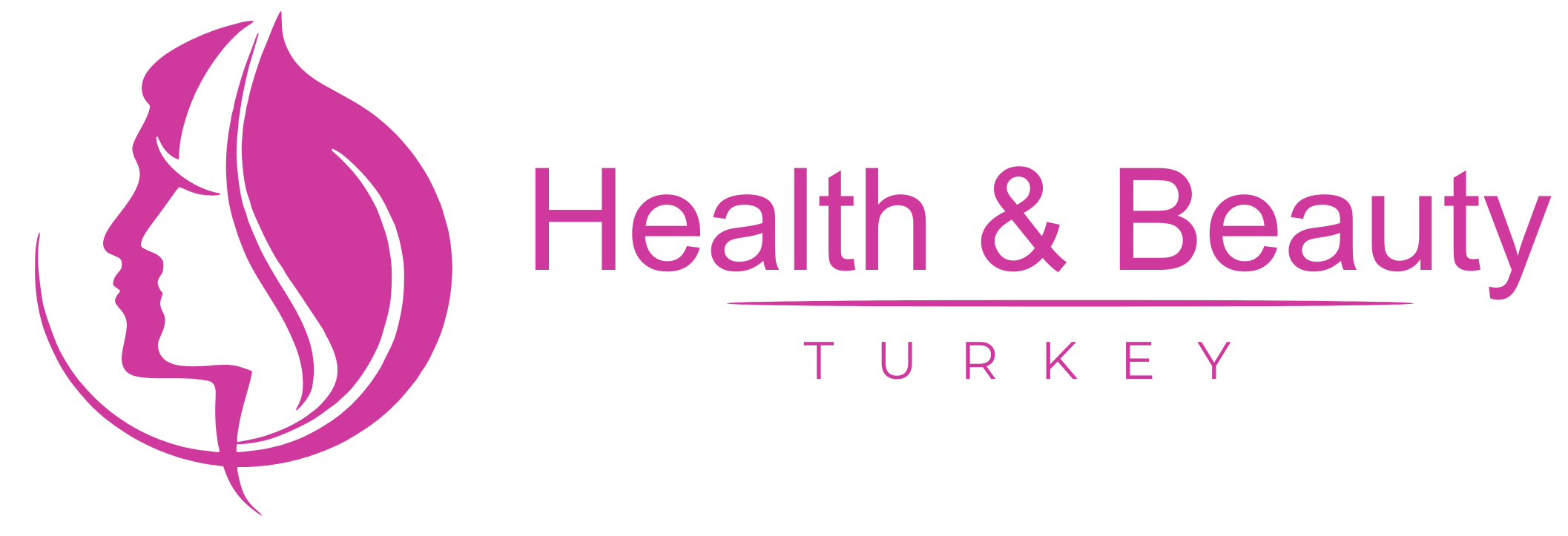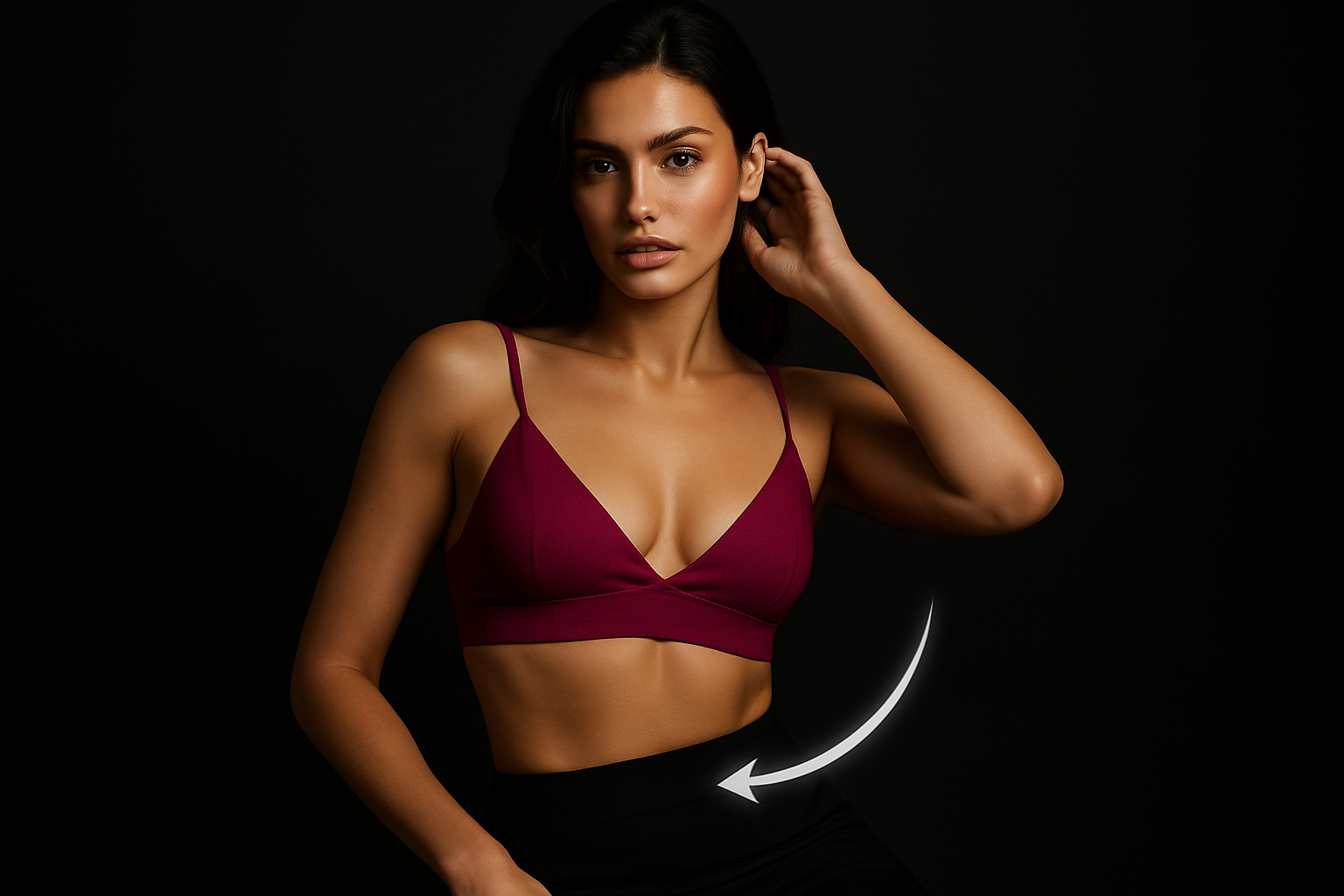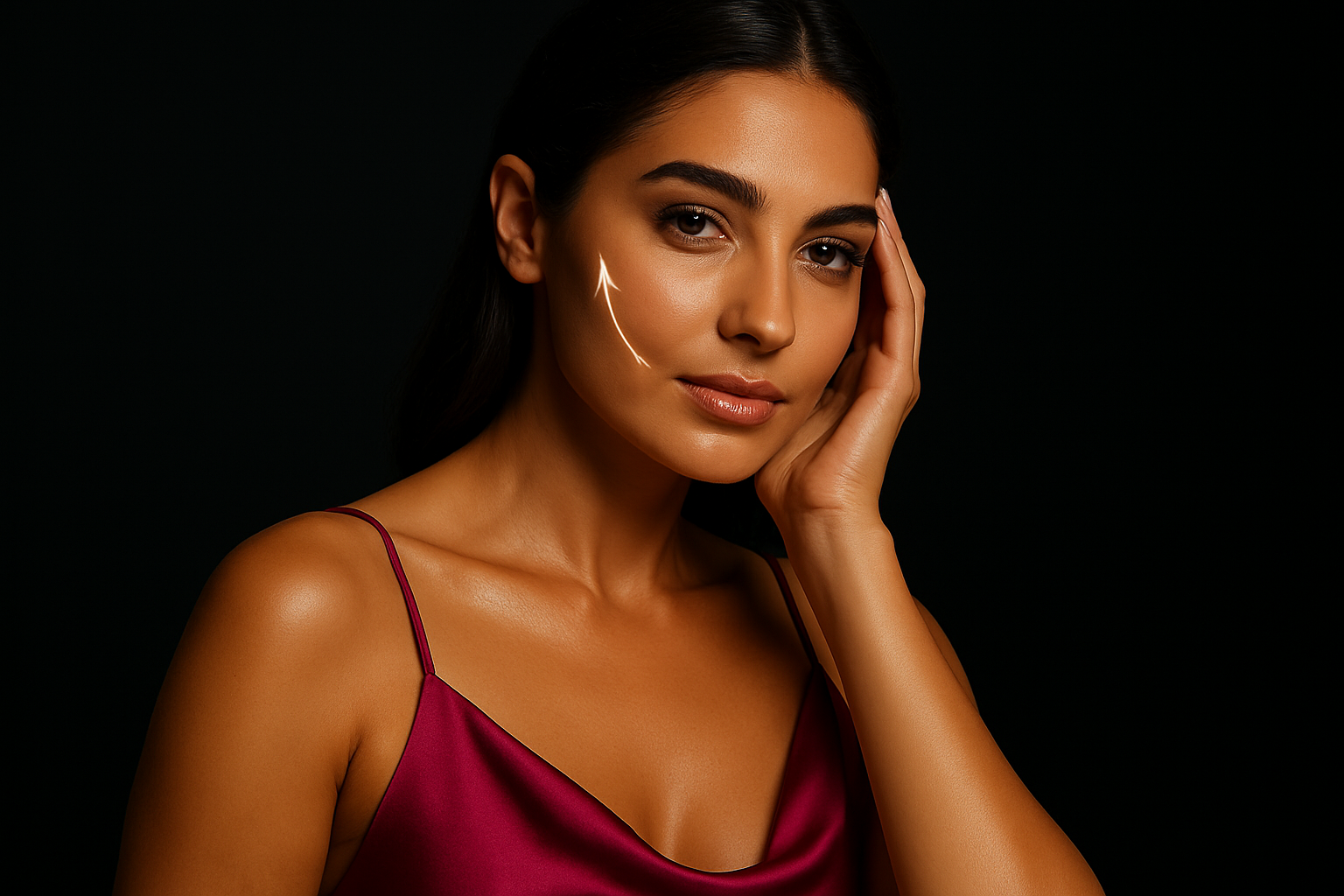Cosmetic vs. Reconstructive Surgery: Understanding the Key Differences to Make the Right Decision in Turkey
When it comes to improving appearance or restoring function, individuals often face a mix of medical terms that may seem similar at first glance but carry fundamental differences. Among the most prominent of these terms are “cosmetic surgery” and “reconstructive surgery.” Understanding the precise difference between these two major fields of medicine is not just useful, but essential for anyone considering these procedures.
At “Health & Beauty Turkey”, we pride ourselves on providing the latest treatments in the field of cosmetic and reconstructive surgery, supported by the expertise of our renowned doctors in Turkey, which has become a leading global destination for medical tourism.
Many patients from all over the world seek out Turkey to benefit from the outstanding quality of medical care, competitive costs, and modern technologies it offers. However, some may worry about the potential risks or complications that can arise after any surgical procedure. This concern is natural and legitimate, which is why we emphasize the importance of transparency and providing the highest levels of safety, including offering “Medical Tourism Complications Insurance” for your peace of mind.
In this comprehensive article, we will delve deep into the difference between cosmetic and reconstructive surgery, exploring their goals, types, and how to achieve the best results at “Health & Beauty Turkey,” while shedding light on the latest scientific advancements to ensure you receive accurate and reliable information.
Cosmetic and Reconstructive Surgery: Basic Concepts
Before diving into the details, let’s establish clear definitions for these terms.
- Cosmetic Surgery: This is a surgical specialty focused on enhancing a person’s appearance. Its primary goal is to improve aesthetics and modify physical features that an individual may find unsatisfactory, regardless of any functional defect. It is an elective procedure aimed at achieving improved harmony, proportion, and beauty.
- Reconstructive Surgery: This is a surgical specialty aimed at restoring the normal form and function of parts of the body that have been damaged or impaired due to accidents, congenital defects, diseases, or previous surgeries (such as tumor removal). The main goal is to repair and correct deformities and restore the normal function of the affected part.
It can be said that cosmetic surgery focuses on “beauty,” while reconstructive surgery focuses on “function and repair.” However, these two fields often overlap, as a reconstructive procedure can have positive cosmetic effects, and some cosmetic procedures can restore or improve a specific function.
The Core Difference: Goal and Purpose
The fundamental difference between cosmetic and reconstructive surgery lies in the goal of the procedure:
Cosmetic Surgery:
- Goal: To improve overall appearance, increase self-confidence, and correct features that the person considers unattractive.
- Motivations: The desire to achieve certain aesthetic standards, overcome signs of aging, or modify body features for better harmony.
- Scope: It covers a wide range of procedures that do not address an existing medical problem but rather seek to “enhance” what is already there.
Reconstructive Surgery:
- Goal: To restore lost function, correct congenital or acquired deformities, and rebuild damaged tissues and organs.
- Motivations: A medical need to repair damage, restore the ability to use a part of the body, or correct a defect that affects health or quality of life.
- Scope: It includes complex procedures aimed at repairing damage from trauma (burns, injuries), congenital defects (cleft lip, cleft palate), or the removal of tumors that require reconstruction.
Areas of Overlap and Interdependence
Despite the difference in primary goals, cosmetic and reconstructive surgeries often overlap and depend on each other. For example:
- Breast reconstruction after cancer removal: This is a quintessential reconstructive procedure aimed at restoring the shape of the breast after it has been removed due to cancer. However, the goal is not only to restore the form but also to improve the aesthetic aspect so the patient feels confident. Here, cosmetic surgery techniques play a significant role in achieving a natural and satisfactory result.
- Cleft lip and palate repair: These are congenital defects that require reconstructive surgery to restore function (eating, speaking) and form. These cases often require multiple surgical stages and may involve subsequent cosmetic procedures to improve appearance.
- Rhinoplasty: While it can be considered primarily a cosmetic surgery if the goal is to improve the shape of the nose, it can be reconstructive if the goal is to correct breathing problems caused by a deviated septum or to repair a deformity after an injury.
- Limb reconstruction after accidents: Restoring the function and movement of a lost or severely damaged limb is the essence of reconstructive surgery, but it requires cosmetic skills to achieve a look that is as natural as possible.
Examples of Cosmetic and Reconstructive Procedures
To further clarify the difference, here are examples of procedures within each field:
Examples of Cosmetic Surgery:
- Facelift: To remove wrinkles and signs of aging.
- Rhinoplasty: To change the shape of the nose.
- Liposuction: To remove excess fat from specific areas of the body.
- Breast Augmentation: To increase breast size.
- Breast Reduction: To reduce the size of large, sagging breasts.
- Blepharoplasty (Eyelid Surgery): To remove excess skin or puffiness around the eyes.
- Buttock Augmentation: Using fat grafting or implants.
- Filler and Botox injections: To remove wrinkles or fill certain areas (though non-surgical, they fall within the scope of cosmetics).
Examples of Reconstructive Surgery:
- Cleft lip and palate repair: To correct congenital defects in the mouth and palate.
- Breast reconstruction: After a mastectomy due to cancer.
- Skin reconstruction after burns: Using skin grafts to repair damaged areas.
- Repair of deformities from injuries: Such as facial reconstruction after a car accident or injury.
- Hand and nerve repair: Restoring function after serious injuries.
- Repair of large or disfiguring scars: To reduce the visibility of scars and restore a natural appearance.
- Tumor removal and area reconstruction: Such as removing a skin tumor and rebuilding the lost tissue.
Who are the Candidates for These Procedures?
Determining the right candidate for each type of surgery depends on several factors:
Candidates for Cosmetic Surgery:
- Health Stability: The patient must be in good overall health and not suffer from chronic diseases that could hinder the healing process or increase surgical risks.
- Realistic Expectations: The patient’s expectations must be realistic, they must understand the potential outcomes, and their motivation should be personal desire, not external pressure.
- Age: It is usually preferred that the patient has reached physical and psychological maturity, often over the age of eighteen.
- Psychological Readiness: Being prepared to accept the recovery period and adhere to post-operative instructions.
Candidates for Reconstructive Surgery:
- Medical Need: A clear need to restore function or form due to a congenital defect, injury, disease, or previous surgery.
- Health Stability: Although reconstructive surgery may be necessary even in cases of illness, general health plays a significant role in determining the success of the procedure and recovery.
- Readiness for Recovery: Some reconstructive procedures may require multiple stages and operations, and the patient must be prepared for a long healing process.
- Condition Assessment: The surgeon evaluates the extent of damage and deformity to determine the best treatment plan.
Who May Not Be a Suitable Candidate?
- Patients with unstable chronic diseases (such as uncontrolled diabetes, severe heart disease, blood clotting disorders).
- Heavy smokers (quitting smoking is advised before and after surgery to improve healing).
- Those with unrealistic expectations or seeking absolute perfection.
*People with certain psychological disorders or very pronounced body dysmorphia may require a specialized psychological evaluation.
Preparing for the Procedure in Turkey: A Journey to Recovery
Whether the surgery is cosmetic or reconstructive, good preparation is key to success. At “Health & Beauty Turkey,” we pay great attention to this stage to ensure a safe and comfortable experience for our international patients.
Before Traveling to Turkey:
- Initial Consultation: The process often begins with a consultation with our medical representative, which may include an initial discussion with the surgeon via video call. You should provide your complete medical history, any medications you are taking, and any allergies you have.
- Photos and Medical Reports: You will often be asked to provide clear photos of the area to be treated, along with any relevant medical reports.
- Medical Tests: We may ask you to undergo some basic medical tests in your home country to ensure you are medically fit for surgery.
- Discussing Expectations: Speak openly with your surgeon about the results you wish to achieve. The surgeon will explain what is possible and what is not, as well as the potential risks.
- Trip Planning: Arrange your travel and accommodation. Our team at “Health & Beauty Turkey” will assist you with travel arrangements, airport transfers, and booking hotels near the clinic or hospital.
Upon Arrival in Turkey:
- Necessary Check-ups: Comprehensive medical check-ups will be conducted in Turkey before the surgery to ensure you are fully prepared. These typically include blood tests, heart examinations (ECG), and X-rays if necessary.
- Final Consultation with the Surgeon: The day before the surgery, you will meet with your surgeon again to discuss all the details, answer your final questions, and make surgical markings (in the case of cosmetic surgery).
- Pre-operative Instructions: You will be given specific instructions, such as stopping certain medications (like blood thinners), avoiding food and drink for a certain number of hours, and how to shower with an antiseptic.
- Anesthesia: The anesthesiologist will assess your condition and discuss anesthesia options (local, general, or sedation) with you.
Steps of the Surgical Process: From Preparation to Recovery
The steps of the surgical procedure vary greatly depending on the type of operation, whether it is cosmetic or reconstructive.
Pre-operative Stages:
- Comprehensive Evaluation: Medical history is reviewed, physical examinations are conducted, and pre-operative photos are taken to document the condition.
- Thorough Consultation: Discussion of goals, risks, benefits of the procedure, and anesthesia options.
- Signing the Informed Consent: After fully understanding the procedure, the patient signs a consent form.
Intra-operative Stages:
- Anesthesia: The patient is given the appropriate anesthesia.
- Surgical Techniques:
- Cosmetic Surgery: May involve removing excess skin, sculpting fatty tissue, adding implants, or reshaping bones.
- Reconstructive Surgery: May involve using skin grafts, tissue flaps, reattaching blood vessels and nerves, or using biomaterials to build tissue.
- Modern Techniques: At “Health & Beauty Turkey,” we use the latest technologies such as endoscopic surgery, laser surgery, and microsurgery techniques to minimize scarring and speed up healing.
- Suturing and Wound Closure: Meticulous suturing techniques are used to minimize the appearance of scars, and the stitches are often absorbable or need to be removed after a period.
Post-operative Stages:
- Recovery: The patient is moved to the recovery room to have their vital signs closely monitored.
- Pain Management: Pain relievers are provided to control any discomfort.
- Wound Care: Wounds are covered with sterile dressings.
- Medical Follow-up: The patient may need to stay in the hospital for a day or two, depending on the type and complexity of the surgery. The medical team monitors the wound, provides necessary instructions, and assists with early mobilization if appropriate.
Recovery Period:
- The First Few Days: The patient may experience some swelling, bruising, and pain. It is important to adhere to instructions for rest, elevating the surgical area, and taking prescribed medications.
- The First Few Weeks: Swelling and bruising begin to subside gradually. A gradual return to light activities may be permitted. It is essential to wear compression garments if prescribed.
- Return to Normal Activities: The time to return to work and sports activities depends on the type of surgery and the body’s response to healing. Most patients can return to their normal daily activities within a few weeks.
- Appearance of Final Results: It may take several months for the final results to appear, as tissues continue to settle and heal, and scars fade.
The Latest Treatments and Innovations in Turkey
Turkey, and particularly prestigious medical centers like “Health & Beauty Turkey,” is always committed to offering the latest advancements in technology and science in the field of cosmetic and reconstructive surgery.
- Minimally Invasive Surgery Techniques: Using techniques like endoscopy or very small surgical incisions to reduce scarring, pain, and recovery time.
- Use of Stem Cells and Tissue Regeneration: Advanced research into using techniques that stimulate natural tissue regeneration, especially in reconstructive surgery.
- 3D Printing: Used in some cases to create precise models of organs or body parts, helping surgeons plan complex reconstructive operations and manufacture some custom prosthetics or implants.
- Advanced Techniques in Tissue Reconstruction: Using microsurgery to transfer tissue while preserving its blood supply and nerves, which significantly improves functional and aesthetic outcomes, especially in cases of breast or limb reconstruction.
- Advanced Anesthesia and Pain Management: Safer and more effective anesthesia techniques, and advanced pain management protocols to ensure maximum patient comfort.
Advantages of Treatment at “Health & Beauty Turkey”:
- World-Class Doctors: Our center includes a selection of surgeons with extensive experience in cosmetic and reconstructive surgery, who have trained at the best institutions around the world.
- Modern Medical Facilities: We operate in hospitals and clinics equipped with the latest technologies and medical equipment, adhering to the highest international quality and safety standards.
- Comprehensive Care: We offer an integrated service package that includes consultations, surgery, accommodation, transportation, and post-operative follow-up to ensure the patient’s peace of mind.
- Competitive Costs: We provide high-quality medical services at reasonable prices compared to many Western countries, making Turkey an ideal destination for medical tourism.
Addressing Patient Concerns: Medical Tourism Complications Insurance
We fully understand that any surgical procedure, regardless of its simplicity or complexity, always carries a degree of risk. At “Health & Beauty Turkey,” we place the safety and satisfaction of our patients as our top priority. That is why we are proud to offer “Medical Tourism Complications Insurance” to all our patients undergoing surgical procedures.
What Does This Insurance Cover?
- Comprehensive Coverage for Complications: The insurance covers the costs of necessary treatment in the event of complications that require immediate and unexpected medical care after the surgical procedure.
- Hospital Stays: It includes coverage for hospital stays if necessary for treatment.
- 6-Month Validity: The insurance is valid for a full six months from the date of the surgery, providing you with extended coverage.
- Revision Surgery Coverage (If Necessary): If complications require a corrective or revision surgery, the insurance covers its costs.
- Travel and Accommodation Coverage for Revision Surgery: If a corrective surgery is necessary and requires you to return to Turkey, the insurance covers the necessary travel and accommodation costs for you.
- Accredited Clinics Only: This insurance is applied in clinics and hospitals that have been accredited by the Turkish Ministry of Health, ensuring the highest standards of quality and safety.
This insurance is part of our commitment to providing a safe and worry-free treatment environment, allowing you to focus on your recovery and results.
Practical Tips for Patients Traveling for Treatment in Turkey
To make the most of your treatment experience in Turkey, here are some practical tips:
Psychological Preparation:
- Speak Openly: Do not hesitate to ask any questions or raise any concerns you have with your doctor or medical representative.
- Prepare for Recovery: You may need some time to rest after surgery. Plan your activities accordingly.
- Family Support: If possible, bring a family member or friend to help you during the early recovery period.
Travel Preparation:
- Visas: Check the visa requirements for Turkey if you need one.
- Health Insurance: In addition to the Medical Tourism Complications Insurance, you may want to get comprehensive travel insurance that covers other emergencies.
- Luggage: Pack comfortable clothes, any personal medications you need, and some books or entertainment devices.
Post-Treatment Lifestyle:
- Healthy Nutrition: Follow a balanced diet to support the healing process.
- Physical Activity: Consult your doctor about when you can gradually start exercising.
- Avoid Smoking and Alcohol: These factors can hinder healing and increase the risk of complications.
- Sun Exposure: Protect the treated areas from direct sunlight.
Why Choose “Health & Beauty Turkey”?
At “Health & Beauty Turkey,” we combine high medical expertise, the latest technologies, and an absolute commitment to patient comfort and safety.
- Our Doctors’ Expertise: Our surgeons are among the best in Turkey, specializing in delivering natural and excellent results, with a focus on both aesthetic and functional aspects.
- Comprehensive Service: We provide you with a seamless treatment experience that begins the moment you arrive. We coordinate all the details with you, including:
- Airport reception and transfers.
- Booking high-end hotels.
- Accompanying specialized interpreters to ensure effective communication.
- Regular medical follow-up after surgery.
- Safety and Trust: We adhere to the highest international safety standards and provide you with “Medical Tourism Complications Insurance” to ensure the utmost protection and comfort.
- Price Transparency: We offer clear and comprehensive price quotes, with a detailed explanation of what the cost includes.
Cost of What is the Difference Between Cosmetic and Reconstructive Surgery? in Turkey
The prices of surgical procedures in Turkey vary based on several factors, most importantly:
- Type of Procedure: The cost of rhinoplasty differs from the cost of breast reconstruction, for example.
- Case Complexity: Cases that require complex or multi-stage reconstructive surgery are more expensive.
- Surgeon’s Reputation and Experience: World-renowned surgeons with extensive experience may charge higher fees.
- Hospital or Clinic: Costs vary between public and private hospitals, and between different clinics.
- Technologies Used: Some modern technologies can be more expensive.
- Length of Hospital Stay: Cases requiring a longer stay are more costly.
- Medications and Implants: The cost of implants (like breast implants) and specific medications is added to the total price.
In general, the prices for cosmetic and reconstructive surgery in Turkey vary widely. For example, prices for common cosmetic procedures like liposuction or rhinoplasty can start from around $2,500 to $5,000, while more complex procedures like a facelift or breast reconstruction can cost between $6,000 and $15,000 or more, depending on the factors mentioned above.
At “Health & Beauty Turkey,” we aim to provide exceptional value for money while maintaining the highest levels of quality and care. We always recommend contacting us directly to get an accurate assessment and a detailed cost for your specific case.
The difference between cosmetic and reconstructive surgery lies in the primary goal: improving appearance versus restoring function and form. In both cases, Turkey, and especially “Health & Beauty Turkey,” strives to offer the highest levels of quality and innovation in healthcare. We understand that the journey of deciding to have surgery can be filled with questions and concerns. That is why we are committed to being your trusted partner every step of the way. With the expertise of our renowned doctors, our modern facilities, and our integrated service, we guarantee you a safe, effective, and satisfying treatment experience. Do not let doubts stop you from achieving the change you desire. Whether you are looking to improve your appearance or restore a lost function, our team is here to help you. We invite you today to contact our certified medical representative for a free consultation. We will be happy to answer all your questions, evaluate your case, and create a customized treatment plan for you, with a detailed explanation of all aspects of the procedure, cost, and the benefits of choosing “Health & Beauty Turkey” for your medical journey. Your more confident future starts here. Contact us now!
Frequently Asked Questions
Q: What is the main difference between cosmetic surgery and reconstructive surgery?
A: Cosmetic surgery focuses on improving appearance and aesthetics, while reconstructive surgery aims to restore the normal form and function of parts that are damaged or have congenital defects.
Q: Can cosmetic and reconstructive surgery overlap?
A: Yes, the two surgeries often overlap. For example, breast reconstruction (reconstructive) may also aim to restore an aesthetic shape (cosmetic).
Q: What are the advantages of having surgery in Turkey?
A: Turkey offers high medical quality, competitive costs, and modern technologies, in addition to a strong infrastructure for medical tourism.
Q: What is the “Medical Tourism Complications Insurance” offered by “Health & Beauty Turkey”?
A: It is an insurance that covers the costs of necessary treatment in case of unexpected complications after surgery, including revision surgery, travel, and accommodation if needed, and it extends for a period of 6 months.




